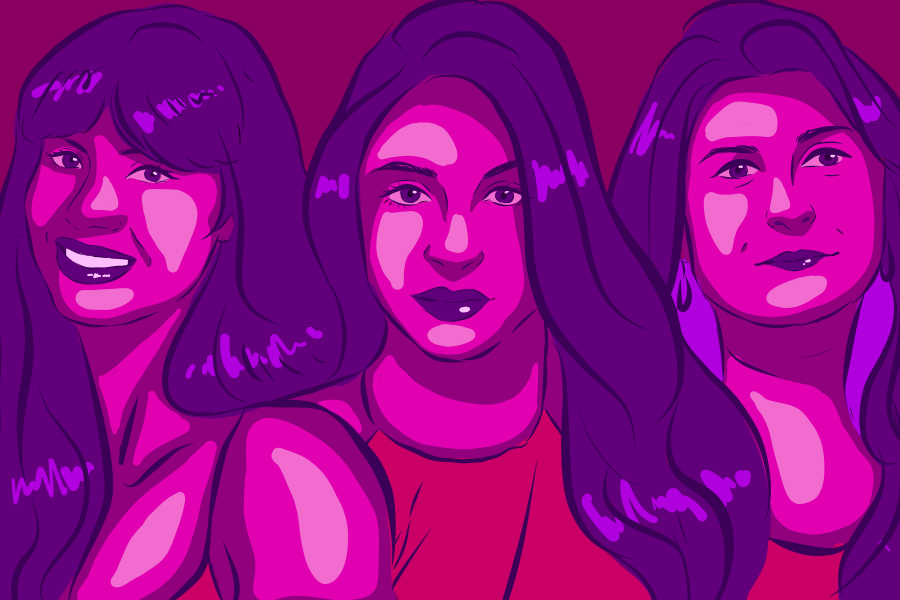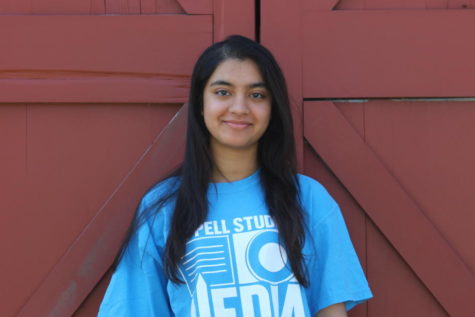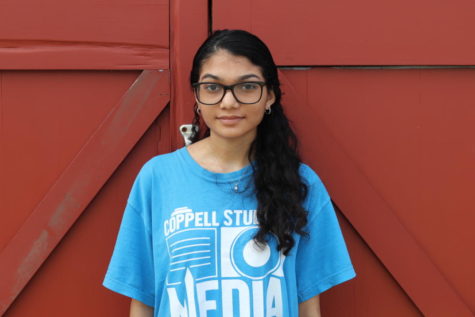Underrated, strong South Asian women using own voice to give voice
March is known as Women’s History Month, and in this day and age, these three powerful women Jameela Jamil, Lilly Singh and Sharmeen Obaid Chinoy, embody it. The Sidekick staff writer Alishba Javaid sheds light on three South Asian women in the entertainment industry who make it a point to support women.
March 31, 2020
Women’s History Month is a month dedicated to celebrating the women who have made great strides that have given us the rights we have today. However, it is also about the women who continue to fight for the issues women still face.
These range from taboo subjects such as eating disorders to prevalent issues such as girls’ education to problems many do not realize still occur such as honor killings.
Fortunately, there are strong, influential women out there fighting these issues head on and using their platform to give a voice to other women.
Jameela Jamil
Jameela Jamil is someone I found acting as Tahani Al Jamil on NBC’s sitcom, “The Good Place.” She plays not only an actress but an activist shedding light on issues from mental health, to abortions, to women’s rights. Although she plays a self centered woman on the show, besides her British accent, she could not be further from her character.
Her forte is eating disorders. Having dealt with anorexia herself and seeing social media plagued with posts of fad diets and detox products, Jamil created a weight campaign called @i_weigh in March 2018 that currently has 1 million followers.
Here, she not only advocates against fat shaming, but challenges one of the main causes of the eating disorder culture: celebrities.
The best part about Jamil is despite being a celebrity herself, she is fearless in calling out other well known celebrities who promote and post toxic, misleading posts for diet products such as detox teas and diet pills.
By stigmatizing engagement in the diet product culture that contributes to unrealistic standards, Jamil is reforming social media to become a place filled with body positivity, self acceptance and inclusivity for women.
Her work has led to tangible effects. Instagram’s new diet product policy banned advertisements for weight-loss products and cosmetic procedures from being seen by users under 18.
Thanks to women like Jamil, profiting off of teen girls insecurities can become a thing of the past.
Lilly Singh
Lilly Singh has been advancing in the entertainment industry for many years now. However, despite dividing her time from creating videos on YouTube for her near 15 million subscribers, one I have personally been subscribed to for six years, to hosting her own late night show, “A Little Late with Lilly Singh,” she has always made supporting women a priority.
In 2015, Singh created a campaign called Girl Love, which like it’s name, is solely focused on breaking the cycle of girl-on-girl hate in society and especially the entertainment industry. She highlights the importance of women building each other up instead of tearing each other down.
She has also made girls’ education a priority by providing the opportunity to receive an education. Teaming up with the WE organization, Singh sells rafikis (bracelets) whose money goes towards the education (supplies, uniforms, fees) of girls in Kenya, India, and Ecuador.
She continues her cause through different platforms. You might have recently seen her in a Super Bowl ad as part of Olay’s campaign about making space for women and addressing the gender gap due to the low number of women in STEM.
Sharmeen Obaid Chinoy
Sharmeen Obaid Chinoy is a Pakistani filmmaker, journalist and activist. Through her company, SOC films, Chinoy creates films tackling issues that, although are not prevalent in America, are still a reality for many women in South Asian countries.
I first found out about her from her monumental Oscar win, the first in Pakistan’s history, for her documentary about acid violence survivors, Saving Face.
She recently continued being a trailblazer by creating Pakistan’s first Netflix original, Sitara:Let Girls Dream, an animation about the dangers of child marriage.
More than that, Chinoy has even dedicated a series of short videos to inform women in Pakistan about their legal rights from honor killings and domestic abuse to even things that might seem simple to us like seeking divorce. She is arming women with information and providing them with resources such as helplines, services and laws that currently exist to enable them to fight for themselves.
It is not only her courage to create these films that shed light on difficult conversations that I admire, but her dedication to deliver the message to her audience.
Using mobile cinemas, trucks traveling to different small towns and villages across the country used for projection screenings, she brings movies to villagers, not villagers to the movies.
Chinoy embodies the power of film storytelling which she has harnessed to empower marginalized women.
Follow Alishba Javaid (@alishbaj24) and @CHSCampusNews on Twitter.











